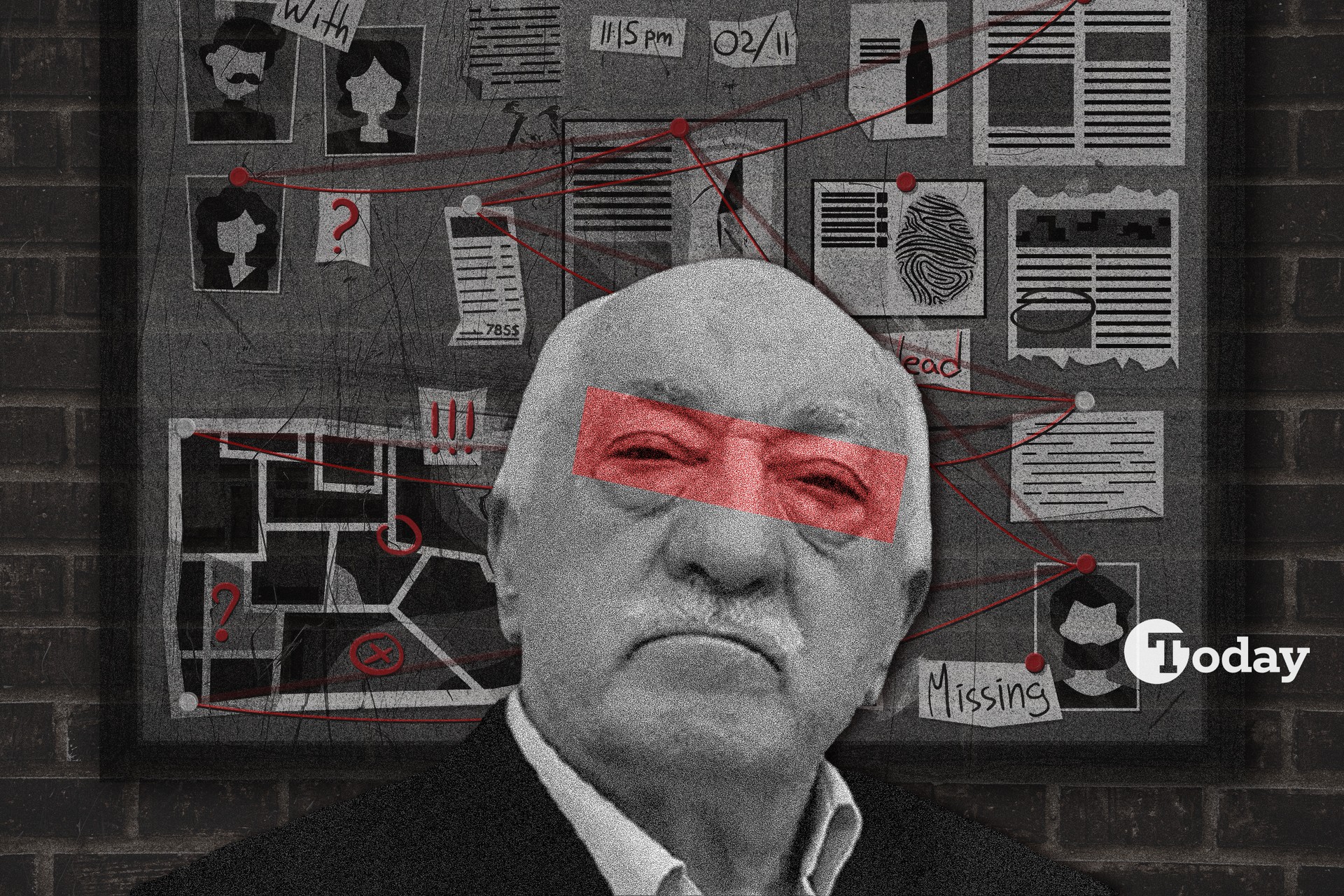
Fetullah Gulen, the founder and ringleader of Fetullah Terrorist Organization (FETO), passed away in the U.S. state of Pennsylvania on Sunday.
Within the cult-like group, Fetullah was referred to by followers with the self-proclaimed title of “Imam of the Universe.”
His passing marks the end of a dark chapter in Turkish history, defined by acts of high treason committed in service of foreign powers.
Here is all you need to know about the mastermind behind the July 15, 2016, coup attempt.
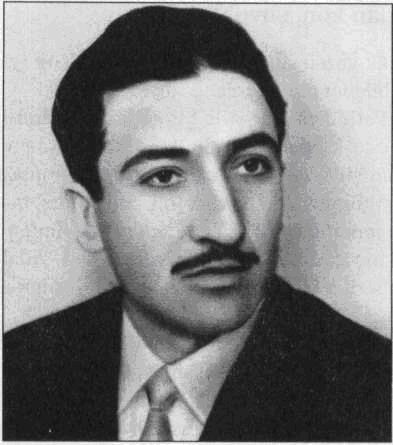
In Türkiye’s third largest city of Izmir in the mid-1960s a mysterious Muslim religious congregation emerged under the cleric Fetullah Gulen. His movement became locally known as “hizmet” (the service), “cemaat” (congregation) and “Gulenciler” (the Gulenists).
The movement, Türkiye’s largest, is estimated to have between 200,000 and 450,000 direct members. Some liberal estimates suggest it may have engaged as many as 4 million individuals within the country’s 85 million population.
The roots of their recruitment strategy can be traced back to its early phases, which focused on educational institutions and special dormitory houses particularly targeting high school and university students.
These dorms played a crucial role in indoctrinating and recruiting new followers, primarily targeting students from impoverished households.
Poor students were provided free dormitory accommodations, while individuals and families received financial support. Afterward, they were offered jobs in exchange for attending indoctrination sessions and following specific orders.
These members who were then educated through their system were placed within various government organs – primarily the Turkish National Police, the Ministry of National Defense and the Ministry of Justice, in essence, creating a parallel state structure.
FETO members were kept under strict supervision and operated in secrecy. They were not informed of the entire membership structure and typically received commands only from their superiors.
Their business empire would expand from education to entering the realms of finance, nongovernmental organizations (NGOs), health and media.
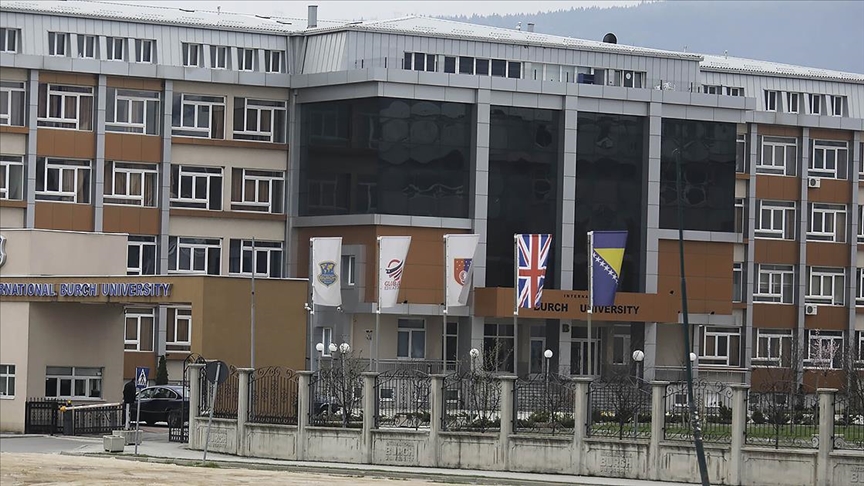
Anadolu Agency reported that the organization’s financial assets are estimated to be between $150 billion to $200 billion.
In 2014, it was estimated that more than 2 million students were enrolled in private FETO-affiliated schools worldwide in more than 2,000 educational premises, which included charter schools, universities, language centers and religious courses across 160 countries.
FETO operates 150 schools in the U.S. In 2019, former first lady Melania Trump visited a FETO school in Tulsa, Oklahoma, as part of her "Be Best" anti-bullying campaign, drawing significant attention from the Turkish press.
The organization controlled the Zaman and Taraf newspapers, as well as the Samanyolu, Bugün, and Ebru television channels. It also operated a bank called Bank Asya.
Crackdown on all domestic business operations occurred leading up to and after the July 15, 2016, coup attempt.
Ankara started to take over FETO-run schools after the failed coup attempt in 2016. These efforts are carried out through the Turkish government’s Maarif Foundation.
As of Oct. 21, 2024, the Maarif Foundation is conducting educational activities in 55 countries and has contacted 114 countries to take over FETO schools.
FETO’s business empire, at least in Türkiye, would completely collapse after the 2016 coup attempt.
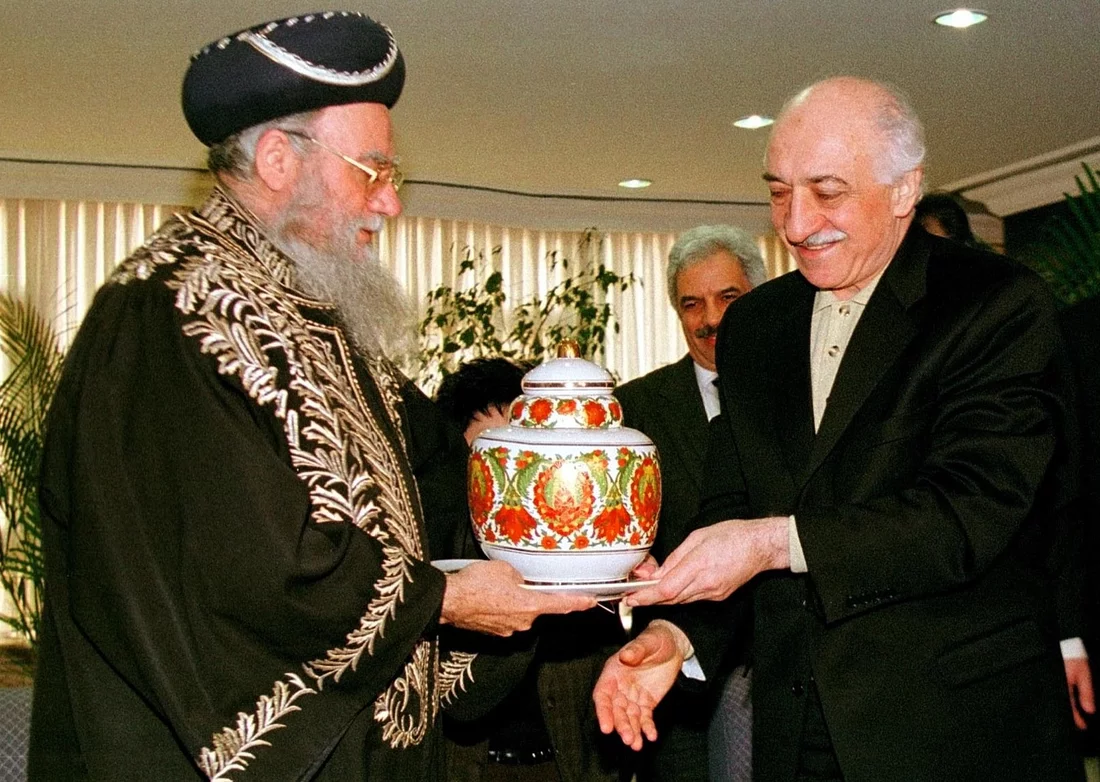
In a democratic struggle in the 1990s, the long-oppressed conservative segment of the society came together eventually under one bloc to unseat a mixture of dysfunctional coalition governments and secularist military conducting coups.
Yet as they amassed power the differences within the conservatives quickly emerged – including a power struggle between FETO and the ruling Justice and Development Party (AK Party). FETO operatives tried to get the bureaucracy to implement its own policies.
After identifying secular elements within the military, media and academia as obstacles, FETO began its efforts to eliminate these groups. Highly controversial judicial cases included the Ergenekon and Sledgehammer trials that dominated the period between 2008 and 2014.
FETO orchestrated conspiracies during these trials, victimizing hundreds. Their media outlets acted as mouthpieces, manipulating public perception during these trials, which were framed as an effort to settle scores with alleged secular coup plotters.
Hundreds of journalists, soldiers, academics and businesspeople were arrested.
Former Turkish General Chief of Staff Ilker Basbug, who was imprisoned between 2013 and 2014 by the Gulenists operating in the judiciary, would remark following the coup attempt, “Between 2012 and 2016, Erdogan fought a lonesome war against the congregation.”
In 2012, the FETO judiciary even went after the head of Turkish intelligence, current Foreign Minister Hakan Fidan, in a failed attempt to cease him. In December 2013, FETO’s prosecutors conducted a so-called corruption and bribery operation attempting to overthrow the government using fabricated evidence.
These events marked the beginning of the openly public confrontation between the ruling AK Party government and FETO.

The final stage of this power struggle culminated in the failed coup attempt of July 15, 2016, during which over 250 Turkish citizens were killed. The movement had overestimated its power and influence over the Turkish bureaucracy.
Since then, Türkiye has recognized FETO as a terrorist organization with roughly 20,000 remaining in prison over coup plot affiliation.
An encrypted and password-protected digital messaging platform called ByLock available on Android and Apple systems, prior to the coup with 600,000 users, was used as FETO’s main messaging platform.
The capture of FETO members and the hacking of the ByLock messaging platform by Turkish intelligence were both crucial in dismantling the movement's structure within the country.
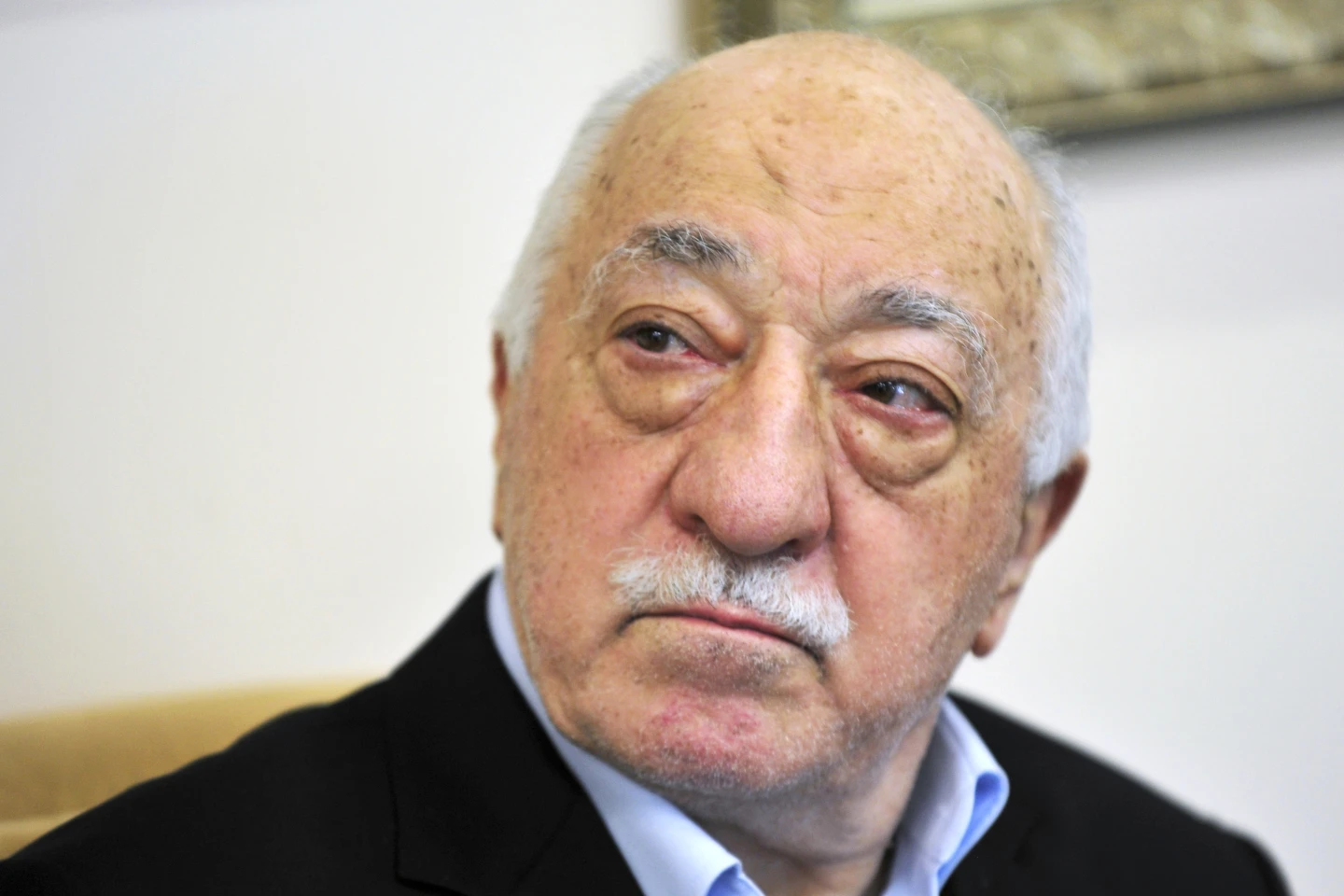
In 1999, Gulen’s alleged health reasons caused his quick relocation to a secluded mansion complex in rural Pennsylvania. He passed away in exile.
Despite countless extradition requests following the 2016 coup attempt and both U.S.-Türkiye enacting an “Extradition Treaty and Mutual Legal Assistance Agreement”, Gulen was never overturned.This situation drew significant criticism, with claims that the U.S. has not fulfilled its obligations despite Türkiye’s requests.
This entire ordeal caused a complete reassessment of the Turkish security apparatus, with partial diversification away from NATO weapons, signing a deal with Russia to procure S-400 air defense systems in 2017.
Leaked emails made it apparent that the Foundation for Defense of Democracies (FDD) in Washington was also involved in the coup.Another minor stakeholder was the United Arab Emirates (UAE). Flight records of Gulenists indicated flying in and out of Emirati airports.
Ties would patch with Abu Dhabi as the red carpet was rolled out in July 2023 during President Erdogan’s visit which marked the signing of major bilateral agreements, including economic.
Flight records revealed FETO members traveling back and forth from the U.S. in the lead-up to the coup. Meanwhile, Washington has refrained from commenting extensively on the situation.
Russia’s President Vladimir Putin was one of the first to call Erdogan following the putschist event which oversaw quick Türkiye-Russia rapprochement, meanwhile, then Vice President Joe Biden visited Ankara in late August 2016 without delivering much appeasement.
Türkiye’s NATO treaty allies, including Nordic countries, Germany, France, and the United States, continue to dismiss the security concerns. FETO-run entities still operate in these countries, such as the "Nordic Research Monitoring Network" in Sweden.
Ankara formally requested the extradition of FETO members from Western allies but to no avail.
 FETO, the group behind the defeated 2016 coup in Türkiye, and its US-based ringleader, Fetullah Gulen, is seen in a car leaving his new home after being evacuated from his farm in Pennsylvania, where he has been living since 1999, in April in Saylorsburg, Pennsylvania, US, October 12, 2024.(AA Photo)" alt="Dark era concludes: The beginning and end of Fetullah Gulen">
FETO, the group behind the defeated 2016 coup in Türkiye, and its US-based ringleader, Fetullah Gulen, is seen in a car leaving his new home after being evacuated from his farm in Pennsylvania, where he has been living since 1999, in April in Saylorsburg, Pennsylvania, US, October 12, 2024.(AA Photo)" alt="Dark era concludes: The beginning and end of Fetullah Gulen">
 FETO, the group behind the defeated 2016 coup in Türkiye, and its US-based ringleader, Fetullah Gulen, is seen in a car leaving his new home after being evacuated from his farm in Pennsylvania, where he has been living since 1999, in April in Saylorsburg, Pennsylvania, US, October 12, 2024.(AA Photo)
FETO, the group behind the defeated 2016 coup in Türkiye, and its US-based ringleader, Fetullah Gulen, is seen in a car leaving his new home after being evacuated from his farm in Pennsylvania, where he has been living since 1999, in April in Saylorsburg, Pennsylvania, US, October 12, 2024.(AA Photo)
Following the death of Fetullah Gulen, the Turkish Ministry of Defense issued the statement, “The ringleader of FETO, who has caused significant harm to our state and brave army, is dead. He plotted against the independence and future of our noble nation by manipulating brainwashed individuals.”
Meanwhile, Foreign Minister Hakan Fidan, who confirmed the account of the death to be true to the Turkish public, stated, “This news will not lead us to relaxation or complacency. It has been a rare threat of its kind … With this death, the spell on them (Gulenists) should be lifted. I call on them to renounce this betrayal. This path is not good. The path will not lead to a good end.”
Speculations in Turkish media had been growing in 2023 of an emerging power vacuum within FETO given the deteriorating health of Fetullah Gulen. Mainly between their U.S. and European legs, but also what little remains in Türkiye.
Their members are still caught trying to enter or leave the country at airports, on yachts in the Aegean, or at border crossings with Bulgaria and Greece.
The death of Gulen comes as welcoming news to most Turkish citizens as the dark chapter concludes over treason of the highest degree. While its operations continue within the U.S. and Europe, this could mark the new beginnings between Türkiye and its allies.